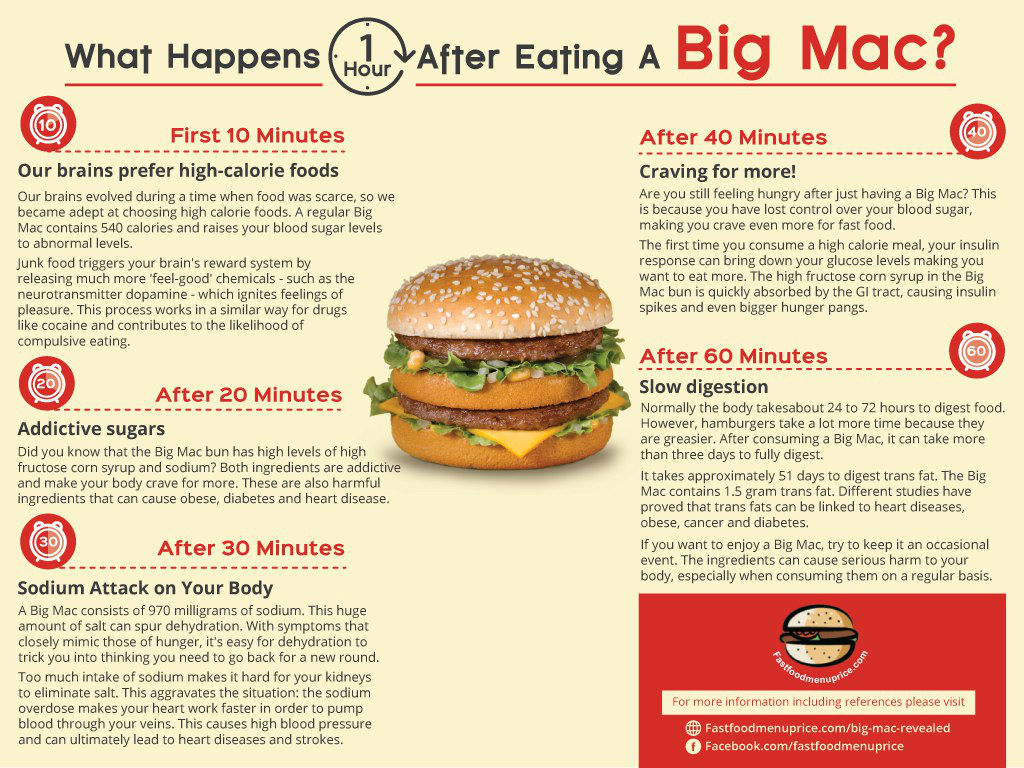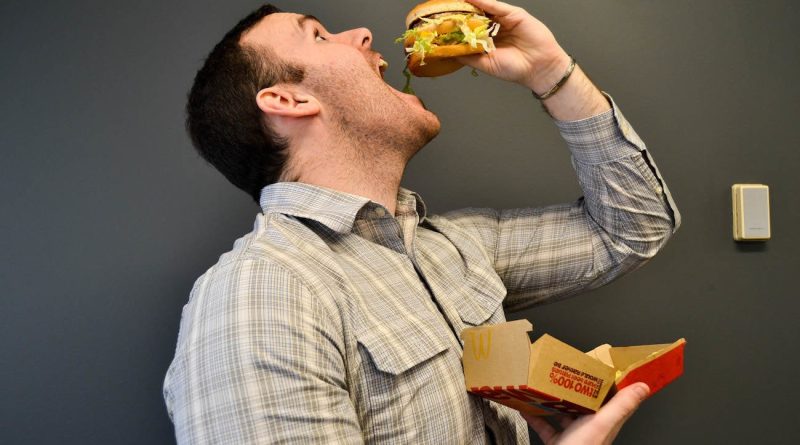Here’s what happens to your body in an hour after you eat a Big Mac
Fast food is easy to get and usually tastes great, but it’s not always the best way to refuel our bodies. On the comparison site Fast Food Menu Price, there is a detailed infographic that shows what happens when you eat a McDonald’s Big Mac, which is one of the most well-known meals you can eat on the go.
For the first 10 minutes, it seems like everything is going great. Sorry, dieters, but our brains are wired to like high-calorie foods, and the Big Mac is a great source of these calories. An average Big Mac has 540 calories, which makes our blood sugar level go up. Dopamine and other chemicals that make you feel good are sent to the brain, and you might find yourself thinking, “This is a tasty burger.”
From 20 to 30 minutes on, things start to go downhill. Because the bun has a lot of fructose corn syrup and salt, we want more of the same (and in the long term, this can lead to obesity, diabetes, and heart disease). The 970 milligrams of sodium then causes dehydration and makes the kidneys and heart work faster. Your blood pressure goes up, and you might want a McFlurry or an apple pie.
According to the infographic, the body will probably still want the same kinds of food at the 40-minute mark. Losing control of your blood sugar levels makes junk food (like a chocolate bar) seem even more appealing than it would normally. The high amount of fructose corn syrup we talked about before is quickly absorbed by the digestive tract, which makes you feel even hungrier.
From 50 to 60 minutes, digestion starts to slow down for good. Food usually takes between 24 and 72 hours to digest, but the grease and trans fat in a Big Mac mean that it can easily take more than three days to digest. Fast Food Menu Price says, “If you want to enjoy a Big Mac, try to make it a once-in-a-while thing.” “The ingredients can do a lot of damage to your body, especially if you eat them every day.”
The infographic was made with information from McDonald’s website and articles from LiveStrong, Blood Pressure UK, and FoodMatters. McDonald’s doesn’t recommend eating only Big Macs and fries every day. If you make them a treat instead of a regular meal, you’ll be fine (in fact, in small doses they can actually be good for you). At least you know exactly what your body is in for now.




